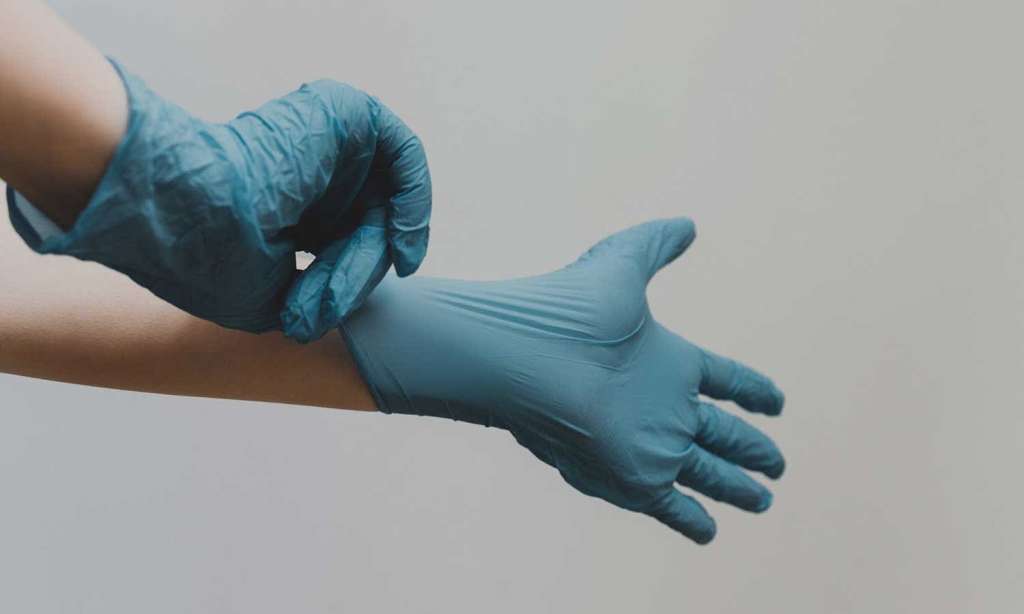Cleaning — or rather, cleaning properly — in the time of the COVID-19 pandemic has never been more important.
You may be spending more time at home and avoiding leaving the house (unless for one of these 16 government-approved reasons), but it’s still absolutely necessary you perform regular and thorough cleans inside your household to stop the spread of germs — coronavirus-related or otherwise.
It’s taken a while for science to better understand the disease and how it works, spreads and lives on different surfaces. Now, after thorough research, scientists are in a better position to give us advice, though there are still many unknowns about the virus.
Below, we’ve rounded up the lastest and most accurate advice for cleaning and disinfecting coronavirus germs in the home.
Understanding cleaning vs. disinfecting
There is a difference between cleaning and disinfecting. Cleaning should be completed first to declutter and remove visible dirt and impurities from surfaces. While cleaning doesn’t kill germs, it can remove them and lower the risk of germs spreading.
Disinfecting refers to the use of chemicals that are used to kill germs on surfaces. This process doesn’t necessarily remove germs, but registered disinfectants will kill them and lower the risk of spreading infection.
“Cleaning of visibly dirty surfaces followed by disinfection is a best practice measure for prevention of COVID-19 and other viral respiratory illnesses in households and community settings,” the Centers for Disease Control and Prevention (CDC) says.
When you walk in the door
If you have been outside, there are a few key steps you should take the moment you walk through the door. First, remove shoes at the door and avoid treading into your home beyond this point or placing shoes on a surface that should remain clean, like the dining table.
Next, remove your “outside” clothes and follow the steps in our laundry guide to disinfecting clothes after against COVID-19.
Throughout this process, always wash your hands. “This can be done with either liquid soap and running water or alcohol-based hand rub,” says the Queensland Government.
Pay attention to high-touch surfaces
UNSW virologist, Dr Sacha Stelzer-Braid, told ABC News that households should target high-touch surfaces using household cleaners or disinfectants.
Dr Stelzer-Braid said that a healthy household should be wiping down high-touch surfaces at least twice a day. These include doorknobs, table surfaces, light switches, handles, toilets, benchtops, taps, sinks and electronics including mobile phones.
The Australian Department of Health advises the use of a disinfectant that claims “antiviral activity”, meaning it can kill a virus (such as chlorine-based disinfectants).
You can use a diluted household bleach solution for disinfecting (following the instructions at the link), or look out for disinfectant products containing at least 62–71% ethanol, 0.5% hydrogen peroxide or 0.1% sodium hypochlorite.
Don’t neglect soft furnishings or minimally touched surfaces
Your floors, ceilings, walls and blinds are considered minimally touched surfaces, though these should be considered in your regular cleans, too.
It’s not necessary to clean your walls and blinds so regularly unless they are soiled or showing visible signs of dust and dirt. Household detergents or wipes will do for these surfaces.
The CDC also recommends cleaning soft (porous) surfaces such as carpets, rugs, cushion covers and drapes. “Remove visible contamination if present and clean with appropriate cleaners indicated for use on these surfaces,” it says.
The Australian Government Department of Health adds that window curtains should be regularly changed in addition to being cleaned when soiled.
Other useful tips
★ Wipe packages with disinfectant when bringing them into your home
★ Wipe grocery items with disinfectant or remove packaging like boxes and cling film
★ Wash fruits and vegetables thoroughly and allow to dry before storage
★ Wash your hands thoroughly after each of these activities
The current health crisis is evolving rapidly. If you suspect you or a family member has coronavirus you should call (not visit) your GP or ring the national Coronavirus Health Information Hotline on 1800 020 080.







